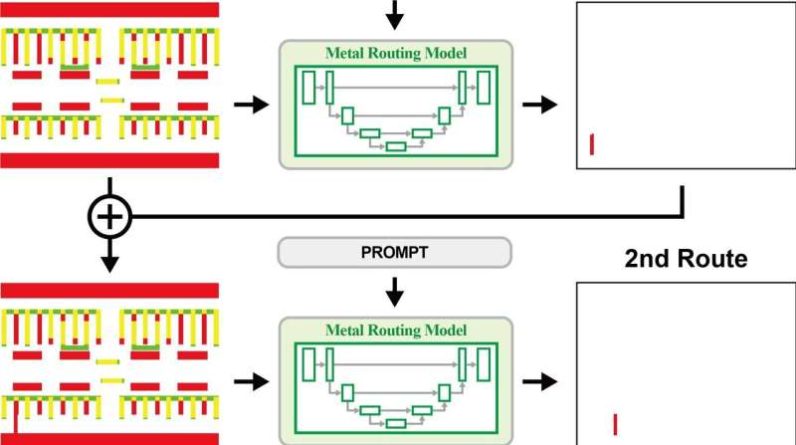
In a volatile market, companies need to guarantee their investment in artificial intelligence will pay off —the answer is intelligent automation, according to Boomi LP.
Over the past few years, Boomi has used its expertise in application programming interface management and integration-platform-as-a-service as a launching pad for artificial intelligence offerings. The company is leaning into agentic AI with a series of products that help businesses streamline their software pipelines while maintaining its presence in API management.
This evolution is not only about keeping pace with competitors — it’s about future-proofing operations. Boomi is positioning itself as the connective layer between legacy systems and emerging AI workflows, aiming to remove the friction from enterprise modernization. The company’s AI-centric approach is designed to help enterprises integrate faster, reduce cost, and accelerate time to insight.
With the annual Boomi World event kicking off May 12, Boomi’s market strategy is under a spotlight, as experts and analysts look for what to expect from the integration platform.
“Boomi’s infusion of AI into its iPaaS offerings reflects a broader industry shift toward intelligent automation,” said Paul Nashawaty, analyst for theCUBE. “Industry data is projecting that by 2026, 80% of integration work will be handled by AI-enabled tools, up from just 20% in 2023. Boomi is aligning with this trend by using AI to streamline tasks like data mapping, error resolution, and API generation.”
This feature is part of SiliconANGLE Media’s exploration of how the enterprise is leveraging intelligent automation and agentic AI to modernize integration and API management. Be sure to watch theCUBE’s analyst-led coverage of Boomi World from May 14-15. (* Disclosure below.)
Boomi is embracing intelligent automation
Last year, Boomi announced its chatbot, Boomi GPT, as a part of its suite of iPaaS services. Since then, the company has continued to roll out AI products such as Boomi Agentstudio, with an emphasis on agentic AI and intelligent automation.
The AI-powered upgrades to Boomi’s platform reflect an industry shift toward agents and more sophisticated data management. Businesses that previously managed with siloed data are struggling to integrate their system for large language models.
This challenge is especially critical as generative AI becomes more embedded into everyday business workflows. Without strong integration and orchestration layers, organizations risk falling behind as AI-driven decision-making becomes the new norm.
“Unless you’re writing limericks about cats, you’re going to want to ground these AI models with your data, your context,” Matt McLarty, chief technology officer of Boomi, told theCUBE at Boomi World 2024. “This idea of gen AI orchestration is going to become more prominent, but it’s going to become pretty obvious that a platform like ours … is a building block, a foundational element for what you need to do.”
The early access launch of Boomi’s Agentstudio revealed a range of tools for designing and governing AI agents, a unified “Agent Garden” space for interacting with agents using natural language and an “Agent Marketplace” for accessing off-the-shelf and customizable AI agents from Boomi and its partners. The goal is for users to have a more secure and efficient path toward API and platform management.
This modular, agent-based architecture aligns with broader industry momentum toward platform extensibility. Boomi’s bet is that organizations will want to train and deploy their own domain-specific agents while also being able to browse and plug in pre-built capabilities from trusted partners.
“This move mirrors a larger market push to reduce integration complexity and scale digital transformation,” Nashawaty said. “In addition, research estimates global AI spending will reach $500 billion by 2027, with integration being a key enabler of enterprise AI adoption.”
Cementing a position in the API management market
A critical factor in the success of AI adoption is API management. Since integration is Boomi’s bread and butter, connecting businesses’ APIs with an eye toward AI pipelines has been a logical step for the iPaaS company.
“You’ve got to have good governance,” John Furrier, analyst for theCUBE, explained. “They’re nailing that with the data management and the agent framework tied in there … The API management is critical, because 80% of all traffic is run through APIs. It might even be more than that, but that’s basically the internet.”
With Boomi API Management, Boomi provides a more unified platform to manage APIs. The solution tackles API sprawl by offering better governance and security than traditional platforms, with the aim of optimizing performance of API products.
The rise of microservices and hybrid cloud deployments has only increased the need for reliable API oversight. Boomi’s Control Plane aims to provide enterprises with the visibility and control needed to manage complex API ecosystems, regardless of the vendor or underlying infrastructure.
“Boomi is playing a pivotal role in modern API management by combining low-code integration, full API lifecycle capabilities, and built-in governance, enabling both developers and business users to rapidly connect and manage applications,” Nashawaty said.
The Boomi API Control Plane expands on Boomi API management by supporting a wider range of API gateways from other vendors. This product merges the software assets Boomi acquired from APIIDA GmbH and Cloud Software Group Inc. last year, reflecting the company’s move to strengthen its partner ecosystem.
By broadening its compatibility, Boomi isn’t just selling a product — it’s trying to build a platform ecosystem. This approach allows enterprises to use Boomi’s orchestration and observability tools across multi-vendor environments, making the transition to AI-ready infrastructure more feasible.
Boomi’s growing presence in the enterprise world
Boomi has made multiple acquisitions focused on improving its integration platform in the last year, including APIIDA and Cloud Software Group. Most recently, Boomi acquired Rivery, a data integration provider that offers Change Data Capture (CDC). This will enhance Boomi’s platform by facilitating the integration of data across silos and the creation of more efficient data pipelines.
“[Boomi] has been around the block in iPaaS application integration, which, by the way, is never going away, but they had that relationship with Dell, they spun back out,” Furrier said. “This company is really poised … for potentially becoming the next ServiceNow-like company, where their presence in the enterprise is pretty significant.”
The Dell spinout gave Boomi the flexibility to accelerate innovation and pursue aggressive growth. Freed from the confines of a large parent company, Boomi has shifted toward a more agile development cycle, pushing AI updates and new capabilities to market faster than many of its legacy competitors.
That is certainly Boomi’s goal, and the company has made known its strategy to be the fertile soil—Boomi means “earth”—for enterprise business. Since the current market is experiencing a lot of upheaval, Boomi’s expanding network of partnerships and focus on intelligent automation could be key for the company’s success.
“It’s a really unique position to be in, 20,000 customers, 800 partners,” said Savannah Peterson, host of theCUBE, in a conversation with Furrier. “Being at the epicenter of the integration game … isn’t always the most thrilling … When you’re in the middle of a huge technological evolution like we’re going into with AI, it’s actually a really prime spot to be.”
If Boomi succeeds in scaling its agentic AI and cross-platform integration vision, it could become a foundational infrastructure provider for the AI-first enterprise era. As digital transformation increasingly revolves around AI-powered orchestration, companies that offer cohesive, end-to-end integration platforms will likely be the ones shaping the enterprise future.
(* Disclosure: TheCUBE is a paid media partner for Boomi World. Neither Boomi LP, the headline sponsor of theCUBE’s event coverage, nor other sponsors have editorial control over content on theCUBE or SiliconANGLE.)
Image: SiliconANGLE/Canva
Your vote of support is important to us and it helps us keep the content FREE.
One click below supports our mission to provide free, deep, and relevant content.
Join our community on YouTube
Join the community that includes more than 15,000 #CubeAlumni experts, including Amazon.com CEO Andy Jassy, Dell Technologies founder and CEO Michael Dell, Intel CEO Pat Gelsinger, and many more luminaries and experts.
“TheCUBE is an important partner to the industry. You guys really are a part of our events and we really appreciate you coming and I know people appreciate the content you create as well” – Andy Jassy
THANK YOU





